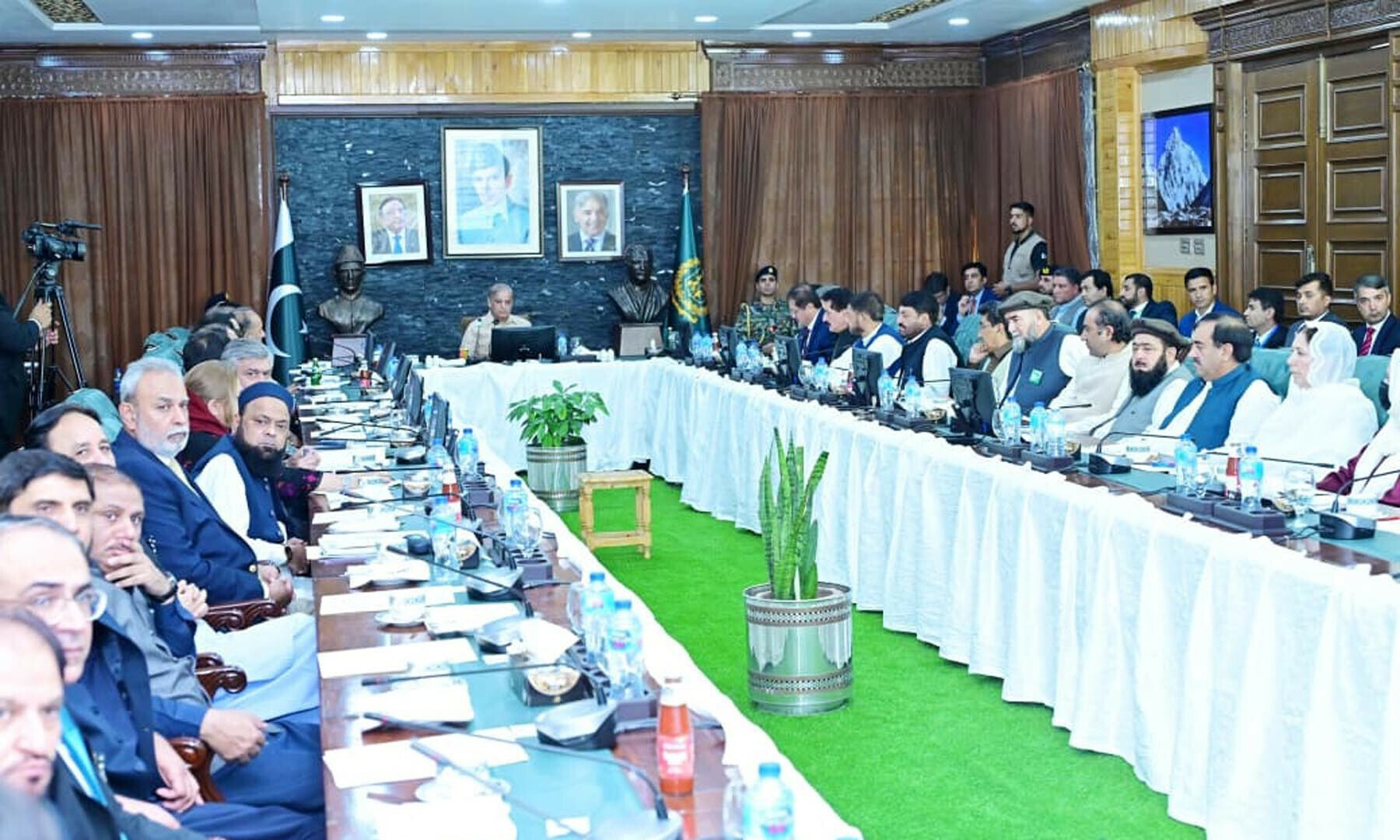Gilgit-Baltistan, a scenic and mountainous region in northern Pakistan, is currently grappling with the devastating aftermath of heavy monsoon rains, flash floods, and cloudbursts. On Monday, Prime Minister Shehbaz Sharif arrived in the region to personally assess the situation and chair a high-level meeting aimed at reviewing the scale of destruction and coordinating relief efforts.
Upon arrival, the prime minister was received by Governor Syed Mehdi Shah, who briefed him on the widespread damage caused by torrential rains, landslides, and floodwaters. Entire villages have been submerged, infrastructure severely damaged, and many lives lost.
Expressing deep sorrow over the loss of lives and destruction of property, PM Shehbaz Sharif emphasized that the situation in Gilgit-Baltistan reflects the increasing impact of climate change in Pakistan. He pointed out that Pakistan remains one of the most climate-vulnerable countries, despite contributing minimally to global carbon emissions.
“Every year, climate-induced disasters are growing in scale and intensity. The world must acknowledge the urgency, and we must act before it’s too late,” the prime minister remarked during the meeting.
He confirmed that the Ministry of Climate Change has been directed to take immediate steps, while terming the National Disaster Management Authority (NDMA) a vital institution in the national response mechanism.
Federal agencies, according to the PM, are working in close coordination with the Gilgit-Baltistan government to accelerate rescue operations and provide timely relief. He was also briefed at ground level about the challenges being faced by local authorities in continuing development projects alongside the emergency response.
PM Shehbaz announced that the government remains committed to improving education in the region. He confirmed the upcoming launch of a Danish school in Gilgit-Baltistan, a project expected to uplift education standards and provide free quality education to underprivileged children.
Both the Prime Minister and Governor Shah offered prayers for those who lost their lives in the floods, extending condolences to the bereaved families.
In response to the widespread destruction, the Gilgit-Baltistan government has officially declared a state of emergency in 37 flood-hit areas across eight districts: Diamer, Gilgit, Ghizer, Skardu, Shigar, Ghanche, Nagar, and Kharmang.
According to G-B Home Department, the flooding has caused:
• At least 10 deaths, many of whom were tourists
• 4 injured individuals
• 509 houses destroyed
• 22 vehicles swept away
• Multiple people still missing
The authorities are invoking provisions under the National Calamities (Prevention and Relief) Act, 1958, to streamline emergency measures.
G-B government spokesperson Faizullah Faraq confirmed that massive losses include livestock, homes, and public infrastructure. Roads have been washed away, cutting off several remote areas and complicating rescue efforts.
The disaster in Gilgit-Baltistan forms part of a wider national emergency. Since June 26, monsoon rains and floods have claimed 299 lives across Pakistan, including 140 children, according to the NDMA. Additionally:
• 715 people have been injured
• 1,600+ houses have been damaged or destroyed
• 428 livestock have been lost
The NDMA has so far conducted 223 rescue operations, successfully evacuating 2,900 individuals from high-risk zones. Relief supplies such as tents, food packs, hygiene kits, and de-watering pumps have been distributed. Medical teams are working across 71 emergency camps to treat hundreds affected by waterborne diseases and injuries.
According to forecasts, another monsoon wave is expected to intensify from August 4 onward, potentially causing further flash floods, landslides, and glacial lake outburst floods (GLOFs), especially in northern and mountainous regions like Gilgit-Baltistan.
In this context, the government is urging residents in vulnerable areas to stay alert and follow official safety advisories.
The prime minister reiterated the federal government’s full support to Gilgit-Baltistan in this time of crisis. He stressed the need for long-term planning, climate resilience, and investment in disaster management infrastructure.
“We cannot afford to treat climate-related disasters as one-off incidents. We must adapt, prepare, and invest in resilience,” PM Shehbaz emphasized.
The floods in Gilgit-Baltistan and across Pakistan underscore the urgent need for climate adaptation and disaster preparedness. The federal and provincial governments must now move beyond short-term relief and build long-term frameworks that address the root causes of such devastation.
For more on Pakistan’s disaster relief strategy, visit the NDMA Official Website. To explore the climate vulnerability of Pakistan, refer to the Ministry of Climate Change.




